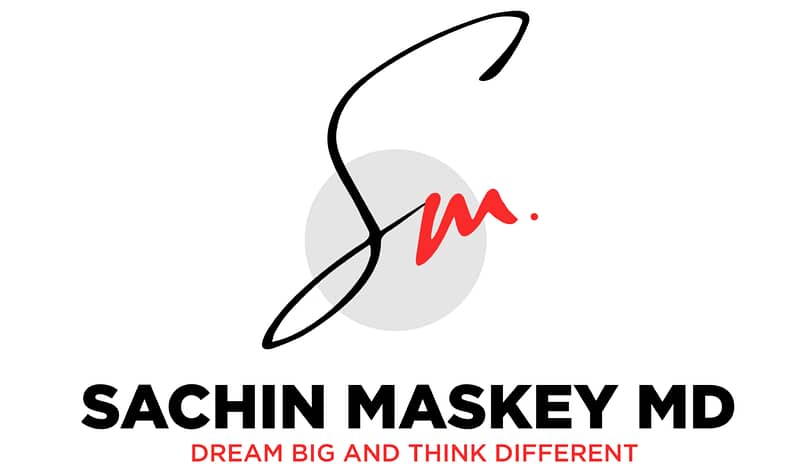Most people hear the word “debt” and cringe. It’s a natural reaction since debt is almost always viewed as a bad thing. People typically associate debt with things like high credit card bills, expensive cars, or getting a pricey education. To them, going into debt is a terrible financial decision that could even leave them penniless. But, you might be interested to learn that not all debt is bad debt. There is such a thing as “good debt.” In fact, good debt is one of the most powerful strategies that wealthy people use to increase their net worth. When used correctly, good debt can be a valuable addition to your investment portfolio.
With that in mind, let’s examine the differences between good debt and bad debt.
What is “Bad Debt”
Bad debt is the type of debt that most people are familiar with. It includes taking on debt in order to pay for things that take money out of your pocket.
Here are three fairly common examples of bad debt:
- Using a credit card to fund an expensive vacation
- Taking out massive student loans to receive a degree that does not guarantee a high-paying job
- Taking out a personal loan to pay for a wedding
In all these examples, you go into debt to pay for things that aren’t necessities. You are essentially just borrowing money to increase your spending power. And, once you have the debt, it will almost instantly start accruing interest which costs you even more money until you have paid off the loan.
In particular, student debt is some of the worst debt that you can have. This is because you still need to repay student loan debt even if you file for bankruptcy. Most other types of loans are forgiven once you have filed for bankruptcy.
With this in mind, let’s take a look at good debt.
What is “Good Debt”?
Good debt is money that you borrow in order to invest in an asset that will generate income, appreciate in value, or both. Compare this to “bad debt” which is debt that you are unable to repay that collects interest and snowballs bigger over time, making it even harder to pay it back.
Debt.org offers us 1 simple way to differentiate good and bad debt…. “If it increases your net worth or has future value, it’s good debt. If it doesn’t do that and you don’t have the cash to pay for it, it’s bad debt.”
Now, the thought of intentionally going into debt can be a scary thought. But, it’s probably only scary since it’s an unfamiliar concept to most people. Think of it like this:
If you had to choose between debt that you will have to pay interest on or debt that could generate a second income for you, which would you choose? The income-generating debt, right? That is exactly what “good debt” is.
Once you’re familiar with the concept, there are plenty of ways to put good debt into action.

Using Good Debt to Your Advantage
The most common way to use good debt is to invest in real estate or start a business.
Real Estate
Almost all properties are bought using a mortgage, debt, or borrowed money (all three of these terms mean the same thing).
When a real estate investor uses debt to buy a property they can then rent out that property to generate cash flow. As long as the investor generates enough cash to pay the mortgage and expenses each month then they have essentially borrowed money to create a secondary income.
Additionally, it’s also safe to assume that your property will increase in value over time. In this sense, real estate investors get two different types of returns: cash flow and capital appreciation.
Good debt is not limited to real estate as it can also be used on something like a car. For example, if you borrowed money to buy a car so that you could drive for Uber or rent it on Turo then this would also be considered good debt. However, let’s stick with real estate as it is the most common example.
For example, let’s examine the chart below which shows the median cost of buying a home in the U.S. since the 1960s. Say you bought a home in 2000 on good land in an attractive location at the median price of $165,000. That investment today would be worth approximately $423,000. That’s just over a 2.5X return in the span of 20 years from just appreciation alone.

And, this appreciation should continue even after your 30-year mortgage is paid off. Now that is some “good debt” right there.
Taxation
In a similar fashion, taking on debt can also help you avoid paying taxes. This is because you can use your debt to strategically show a paper loss on your properties. You can legally report a loss to the government even if you are actually earning a tidy profit each month.
Beating inflation
In some circumstances, going into debt can even help you beat inflation.
For example, the current inflation rate is hovering around 8%. This means that a lump sum of money is losing 8% of its value each year. In other words, if you have $20,000 in savings then it will only be worth $18,400 by next year in terms of purchasing power.
But, if you use this $20,000 lump sum to take out a loan for a property then it’s possible to pay an interest rate that’s lower than the rate of inflation (in this case, anything less than 8% will mean you are coming out ahead). If you secure a loan that charges 5% then you are still beating inflation by 3%.
Business Loans
Another popular way to leverage good debt is by starting a business. Most people assume that you need tens of thousands of dollars to start a business, but this is far from the truth.
If you have a great business idea that you think has a lot of potential then taking out a business loan (good debt) can help you turn your idea into a cash-printing business. Business loans are also not the only option. You can also turn to venture capital, crowdfunding sites, or private equity.
In some cases, all you need is an idea to get rich. By leveraging your idea and other people’s money (good debt), you can use your business idea to make yourself wealthy.
On that note, while good debt can be a valuable tool it’s also not a get-rich-quick scheme. Making a risky investment could put you in serious financial trouble. Just remember, at the end of the day, you are still responsible to repay any money that you borrow.
Borrowing money to buy a property or earn a high-paying degree is a good idea as long as you’ve done the proper research.
A Word of Caution
If you get too overconfident then good debt can just as easily work against you as it can for you. This is why it’s never a good idea to take on loads of debt to fund risky, speculative investments.
For example, using margin to load up on stock options. You don’t want to end up like this day trader who thought he was getting the deal of a lifetime but ended up losing $9 million to a brokerage!

At the same time, taking our $200,000 of student debt may not be a good idea either if you’re earning a degree that won’t secure you a high-paying job.
Final Thoughts on Why Debt Is The King
Once you’re familiar with how you can leverage it, the concept of good vs bad debt is quite simple.
Good debt can benefit you over the long run by helping you invest in assets that will generate a positive return for you. Additionally, since it’s borrowed money, it gives you access to investments that you normally couldn’t afford.
We hope that you’ve found this article on why debt is the king to be valuable! If you’re interested in learning more, please subscribe below to get alerted of new articles as we write them. Or you can also follow along with Avatar Equity and Sachin Maskey on social media.
Sachin Maskey is a physician, real estate investor, philanthropist, and entrepreneur. He has over 17 years of expertise in the medical industry as a family medicine specialist. Outside of medicine, he is the founder of the commercial real estate investment firm Avatar Equity as well as the Dhana Yoga Foundation. You can follow along with Sachin on Instagram, TikTok, Facebook, and LinkedIn.




